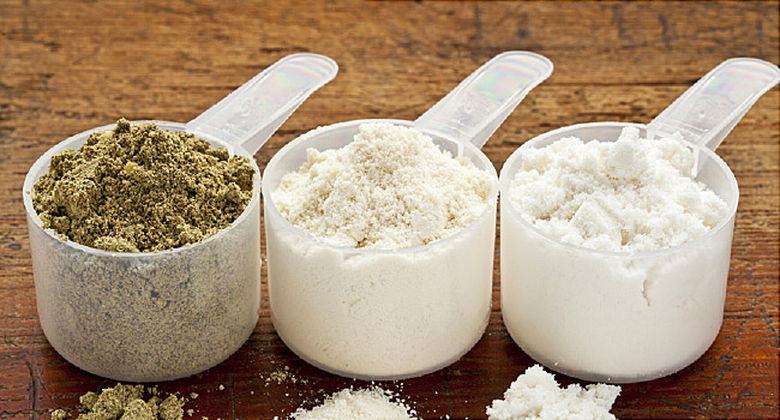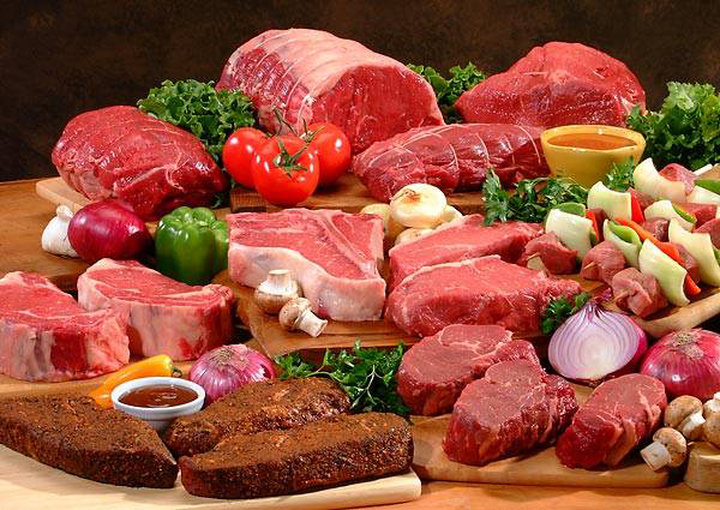 Jake Schuster is a PhD student currently working with the NZ Women’s 7s. Enjoy his guest post about the high protein myth and check him out at http://welltraveledwellness.com/.
Jake Schuster is a PhD student currently working with the NZ Women’s 7s. Enjoy his guest post about the high protein myth and check him out at http://welltraveledwellness.com/.
Today we address the crippling myth that high protein consumption is only for for hardcore muscle-gainers and can damage your kidneys.
Summary: If you’re currently healthy, you can have as much protein as you want without risk to your kidneys. High protein consumption makes MANY good things happen metabolically and hormonally, will not make women gain too much muscle, and will simply be peed out if more than you can use is eaten.
The Myth!
It’s sometimes painful for me to hear people talk about protein. This is an area where a lot of people butcher the science or just say things as if they are fact, even though they’ve only heard or been told these facts… remember folks, always investigate for yourself (or listen to a podcast which tells you).
 Before they were understood as normal metabolic processes, scientists had concerns with several mechanisms of filtration and calcium regulation in human bones as a result of protein consumption. A 1997 study with Boirie, et al examined absorption rate of different types of proteins, leading some to erroneously concluding that only 30g of protein could be digested per meal and above that would hurt your kidneys (1). People with kidney failure or kidney problems are told to eat low-protein diets because they cannot process nitrogen into urea properly so dietary protein can overstress the kidneys. If your kidneys are normally functioning, don’t worry about it. That’s what they are there for! Big food companies and popular media saw the fear of kidney damage, took these fringe notions and ran with them. Remember, it is far cheaper and easier (how fast does beef go bad as opposed to pasta?) to mass-produce carbohydrate heavy foods than healthy proteins. It is not beneficial to the industrial agricultural and pharmaceutical companies (hereafter to be referred to as BFPAM: big food, pharma and media) to have people getting most of their calories from protein and fat. While we’ve already demonstrated how easily BFPAM demonized salt; the story is a bit murkier with protein. It’s not as easy to hate on as fat, mostly because it’s fairly obvious how important protein is. Instead of trying a similar smear campaign to the one waged on fat, BFPAM have simply let people believe that protein in high amounts is bad for your bones and kidneys, while being beneficial only to people who wish to add large amounts of muscle to their bodies (2,3). Let’s have a look at what else they’ve gotten wrong!
Before they were understood as normal metabolic processes, scientists had concerns with several mechanisms of filtration and calcium regulation in human bones as a result of protein consumption. A 1997 study with Boirie, et al examined absorption rate of different types of proteins, leading some to erroneously concluding that only 30g of protein could be digested per meal and above that would hurt your kidneys (1). People with kidney failure or kidney problems are told to eat low-protein diets because they cannot process nitrogen into urea properly so dietary protein can overstress the kidneys. If your kidneys are normally functioning, don’t worry about it. That’s what they are there for! Big food companies and popular media saw the fear of kidney damage, took these fringe notions and ran with them. Remember, it is far cheaper and easier (how fast does beef go bad as opposed to pasta?) to mass-produce carbohydrate heavy foods than healthy proteins. It is not beneficial to the industrial agricultural and pharmaceutical companies (hereafter to be referred to as BFPAM: big food, pharma and media) to have people getting most of their calories from protein and fat. While we’ve already demonstrated how easily BFPAM demonized salt; the story is a bit murkier with protein. It’s not as easy to hate on as fat, mostly because it’s fairly obvious how important protein is. Instead of trying a similar smear campaign to the one waged on fat, BFPAM have simply let people believe that protein in high amounts is bad for your bones and kidneys, while being beneficial only to people who wish to add large amounts of muscle to their bodies (2,3). Let’s have a look at what else they’ve gotten wrong!
The Science!
Newsflash: Your bones aren’t made out of chalk, your muscles aren’t made of rubber, and your organs (heart and brain included) are not slimy putty. All primarily consist of varying types of proteins, the cells of which need to be fed. Every cell in your body contains proteins, which are precursors to DNA, hormones, immune response, and co-enzymes. In other words, dietary protein is pretty essential to human existence and function (sorry, vegans!).
In the long term, high dietary protein consumption has a strong association with improved bone health (4,5). Paradoxically with regards to the above myth, two of the primary risk factors to kidney failure are high blood pressure and diabetes, both of which are attenuated by high protein consumption (6). Furthermore, while many women fear that high protein consumption will bulk them up too much or cause them to grow a mustache, landmark studies have shown increased protein consumption in women merely establishes a good hormonal balance and helps bones grow strong (7,8). Females fearing that high protein consumption would cause them to become fat or hypermuscular can rest assured that it actually makes females specifically lose fat and gain strength (9).
In the face of these myths being purported by BFPAM, a group of doctors at Harvard and Johns Hopkins teamed up together to publish a very large study in the Journal of the American Medical Association (it doesn’t get more prestigious than JAMA, folks) concluding that replacing carbohydrates with high amounts of protein (or fat) improved blood pressure, blood lipid levels, and cardiovascular disease risk (10). It also enhances immune system functioning and has been directly shown to reduce the incidence of upper respiratory tract infections (URTIs) ever wondered why people who go on salad-only restrictive diets seem to be sick all the time? Yep (11). Lastly, if you are trying to stick to a solid, positive, clean eating plan, protein causes more satiety (feeling of fullness) than fats or carbs, making a case for it to be the macronutrient most consumed (12), especially if you are a highly-trained athlete (13).
 Actionable Wisdom
Actionable Wisdom
Folks often ask how much protein you can absorb in a meal, but that’s actually the wrong question. Instead we want to know how much protein will maximize the anabolic response? 30-40 grams is the Goldilocks zone…above this is where you see the point of diminishing returns on muscle protein synthesis (14).
Counterpoint!
Despite this seemingly comprehensive victory for the common sense, in that same year (2005) epic douchebag T. Colin Campbell wrote a little book called the China Study. Scientists who cherry pick data for correlation to implicate causation in order to make a name for themselves should be hung by their toenails. This hack job is not a study but a book with sweeping, generalized epidemiological observations. It spews an extraordinary amount of ridiculous nonsense, and Campbell claiming to not have BFPAM in his wallet is like me claiming to not like beer. His Harvard degree convinced people to listen despite the entire rest of the Cambridge Crew vehemently disagreeing with him (see Deans, Emily; Lalonde, Matt). Unfortunately this book gave the dying embers of the anti-protein mafia new, fiery life.
The Takeaway
As a result of that book, people have been blind to quite a bit of good research published in the middle of the last decade (15,16,17,18,19,20,21) and have carried on believing all sorts of nonsense. Thankfully, The China Study has been systematically ripped to shreds by just about anybody with a brain and a pen. You can find a great list of reviews in the article RIP China Study. The good scientists of the world even managed to drag Campbell into a debate about protein consumption and it’s role in modern disease, which can be found here (22). Definitely recommended viewing.
There are many subtopics and threads to discuss in this area, and you can expect posts in the near future about vegetarianism, meat and dairy, and size concerns for women. To hear more about these topics as well as how much protein you should be consuming and how it can improve your performance, listen to our podcast with Dr. Stu Phillips, one of the top protein researchers in the world. Now go out and enjoy that steak. After all, it’s all about the #GAINS, right?!
